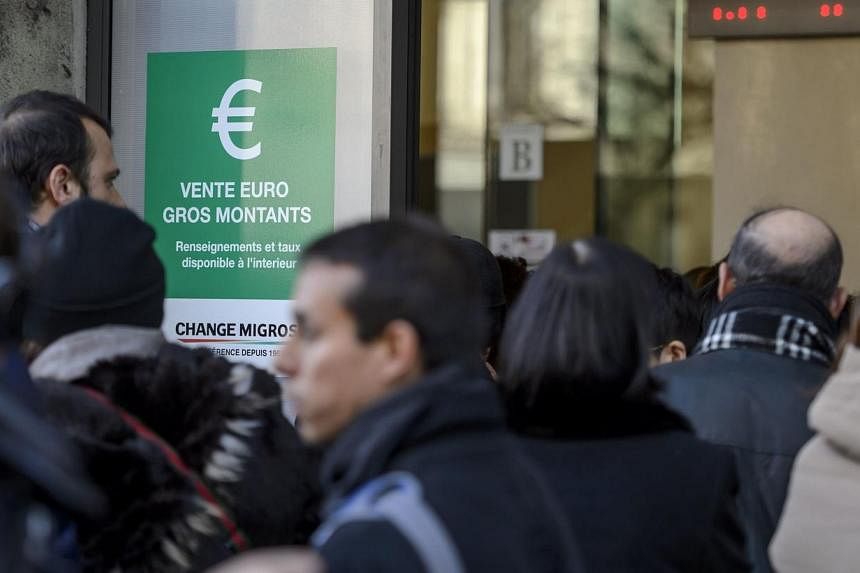SYDNEY (Reuters) - The euro languished just above an 11-year trough on Friday as investors wagered that the Swiss move to abandon its currency cap meant it was almost certain the European Central Bank would launch large-scale bond buying next week.
The euro suffered its biggest one-day drop against the Swiss franc in history after the Swiss National Bank (SNB) stunned markets by suddenly abandoning its long-held pledge to keep the franc above 1.20 per euro.
Dealers assumed the Swiss had moved with the knowledge that the ECB would take the plunge into full scale quantitative easing at its policy meeting on Jan. 22.
"No doubt the market will be expecting big stimulatory action from the ECB next week if the Swiss fear a much weaker euro," said David de Garis, senior economist at National Australia Bank. "In fact, the move unleashed a spate of currency volatility, including the euro, major currency pairs whipsawing significantly."
After falling 30 per cent in a matter of minutes in wake of the SNB's shock move to 0.8696 Swiss francs, the euro has since clawed back to 1.002 francs.
The loss of Swiss support for the euro saw the single currency slide across the board to reach as low as US$1.15675, a trough not seen since November 2003, before recovering a bit of ground to last stand at US$1.1645.
The euro was hammered against the other major currencies. It fell to a three-month low of 134.70 yen and hit a four-month low of A$1.4062.
The common currency is gearing up for another trial as the foreign exchange markets await the closely-watched ECB policy meeting on Jan. 22 and a snap election in Greece three days later.
"The euro may have suffered deep losses but it will still come across selling pressure of a different kind if the ECB does decide to adopt quantitative easing," said Daisuke Karakama, market economist at Mizuho Bank in Tokyo.
Karakama said the market was yet to form a consensus on how the ECB may launch quantitative easing, exposing the euro to large swings when the central bank makes its move at next week's meeting. "The ECB may even opt to wait until March to unveil the finer points of QE," he said.
The financial markets are keeping a nervous watch on the Jan. 25 Greek vote, as a win by the leftist Syriza party could trigger a standoff with the EU/IMF lenders and drive Greece from the euro zone.
Traders said the ECB bond-buying program would inject fresh euros into the market, some of which would ultimately flow into the safe-haven Swiss franc.
That would render the task of maintaining the 1.20 per euro cap all the more difficult and expensive for the SNB, hence its decision to abandon the pledge.
The panicked market reaction helped lift the safe-haven Japanese currency against the dollar.
The US dollar hit a fresh one-month low of 115.90 yen.
Amid the frenzied trade, the Aussie managed to reach a one-month high of US$0.8295 before pulling back to US$0.8234.

